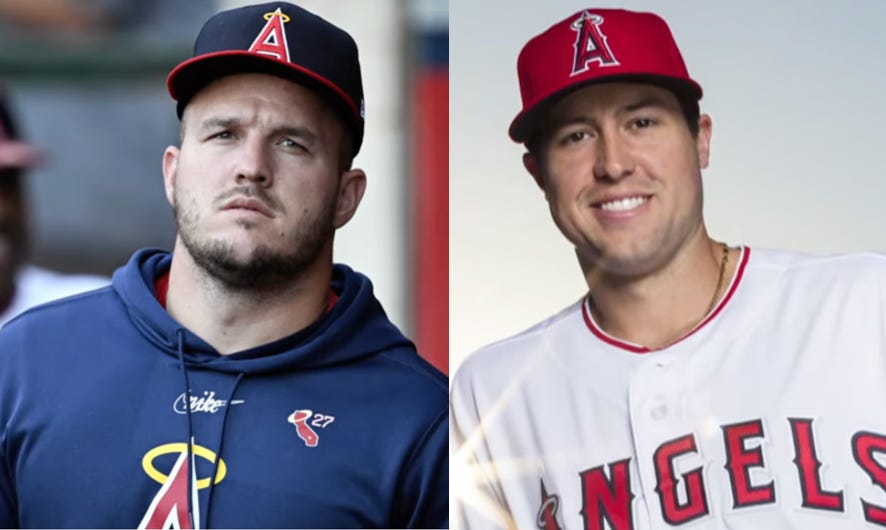Baseball great Mike Trout testifies in civil trial over Angels pitcher's fatal drug overdose
The Angels slugger fielded questions about Tyler Skaggs' and Eric Kay's drug use in front of a jury deciding a wrongful death lawsuit against the Angels over Skaggs' 2019 death.
Baseball star Mike Trout testified Tuesday in a wrongful death lawsuit against the Angels organization over the 2019 drug overdose death of pitcher Tyler Skaggs.
Stating his name as “Michael Nelson Trout,” the Angels outfielder and power hitter was on the witness stand for ab…



